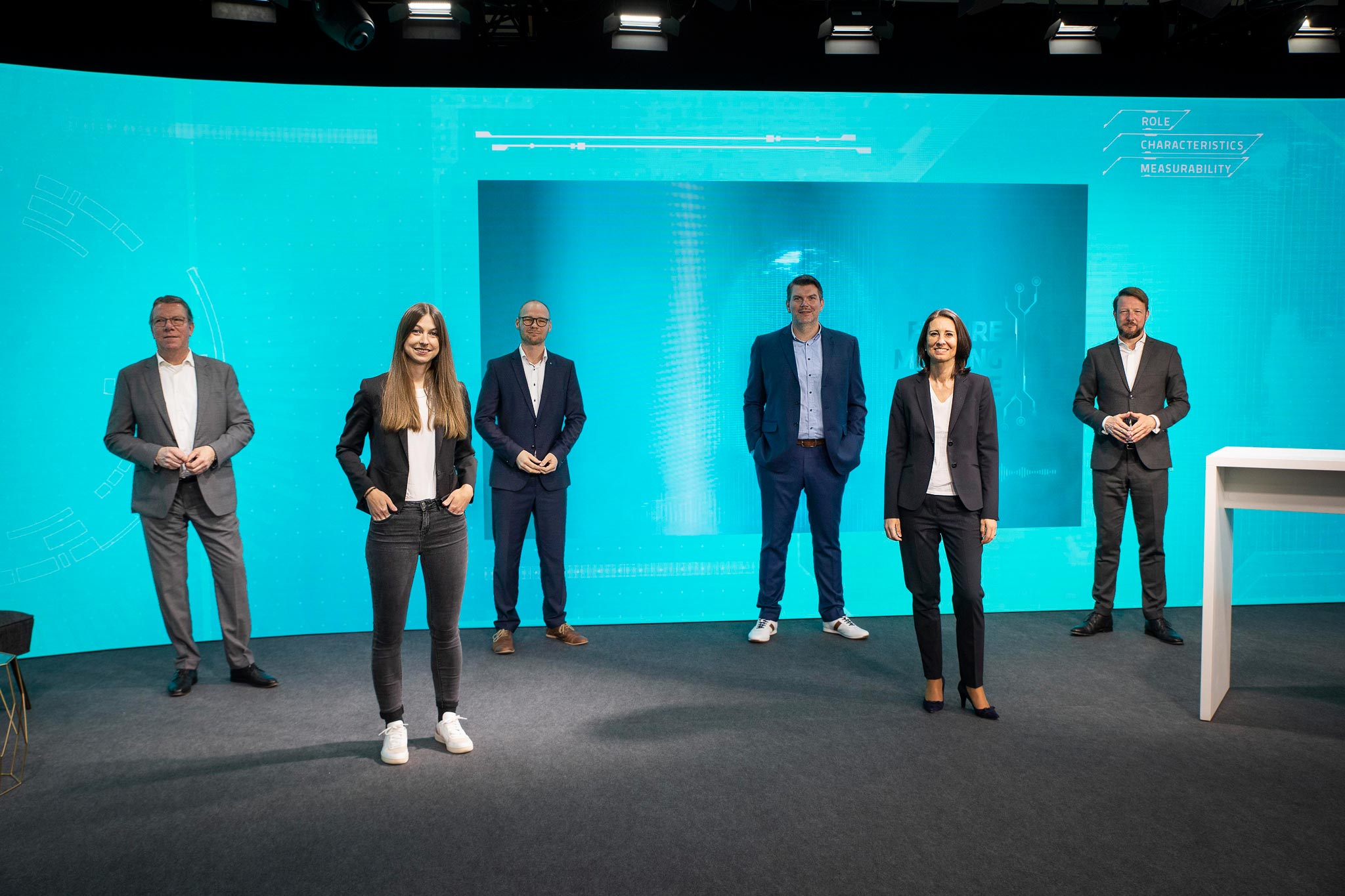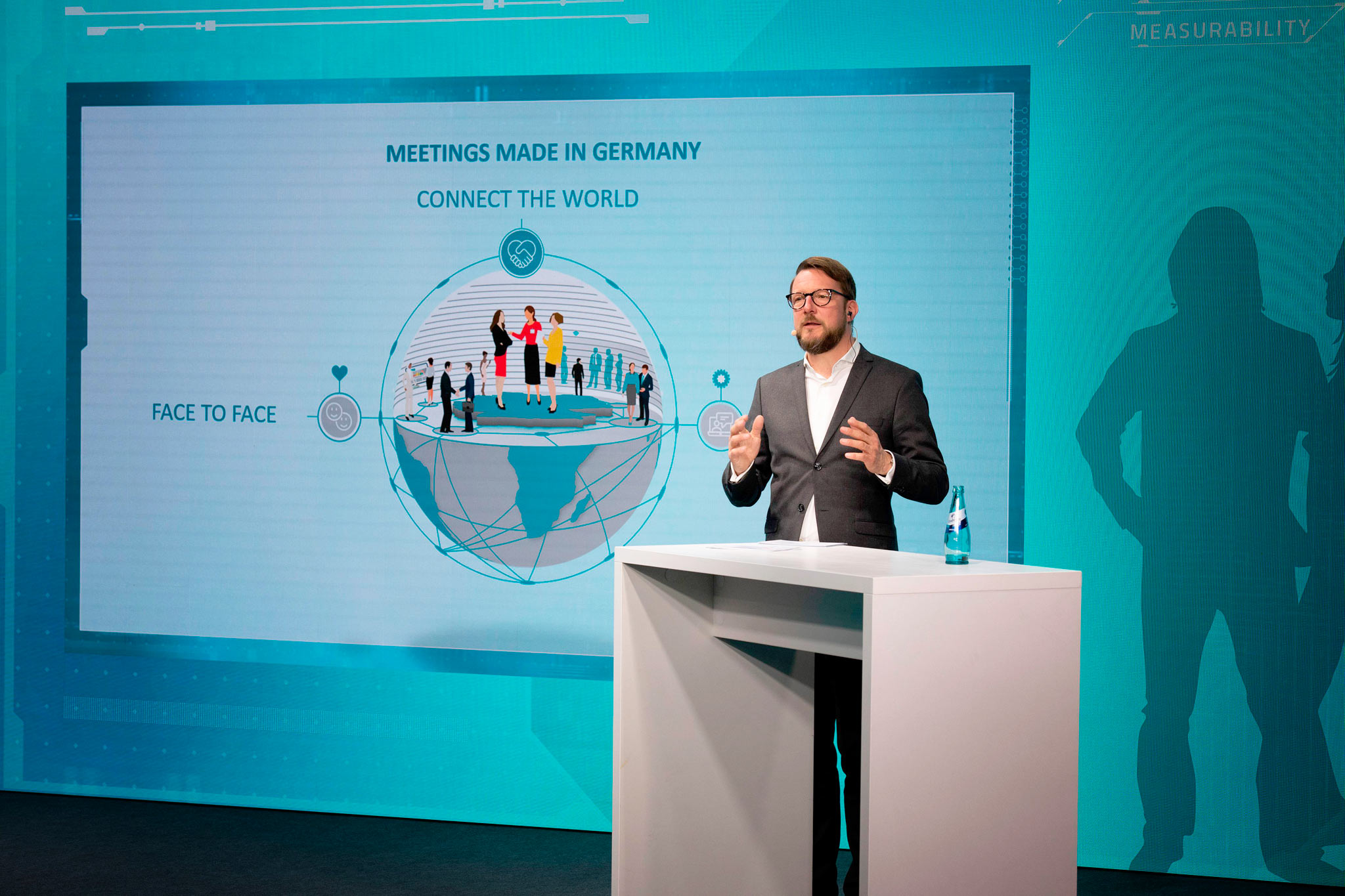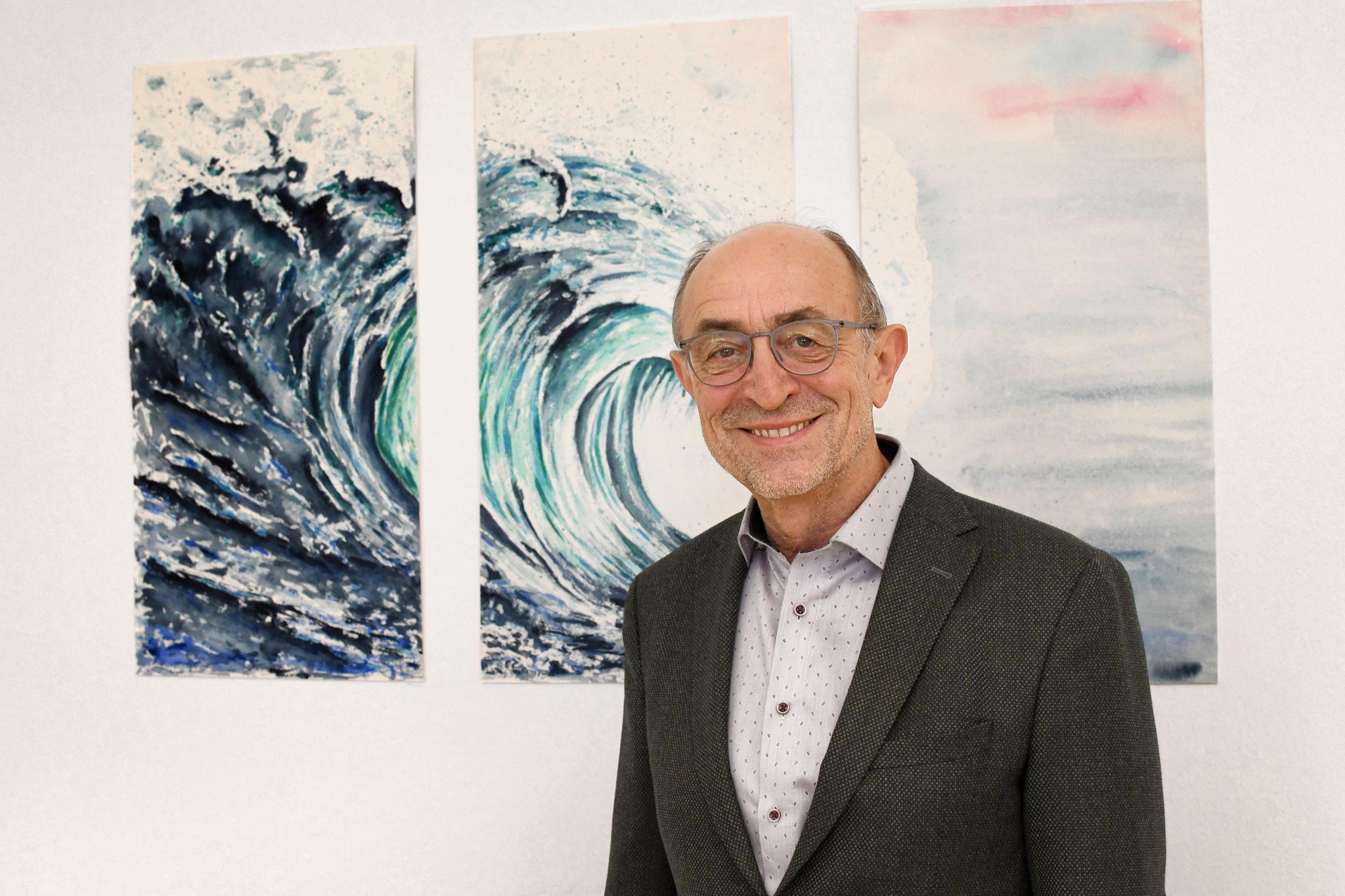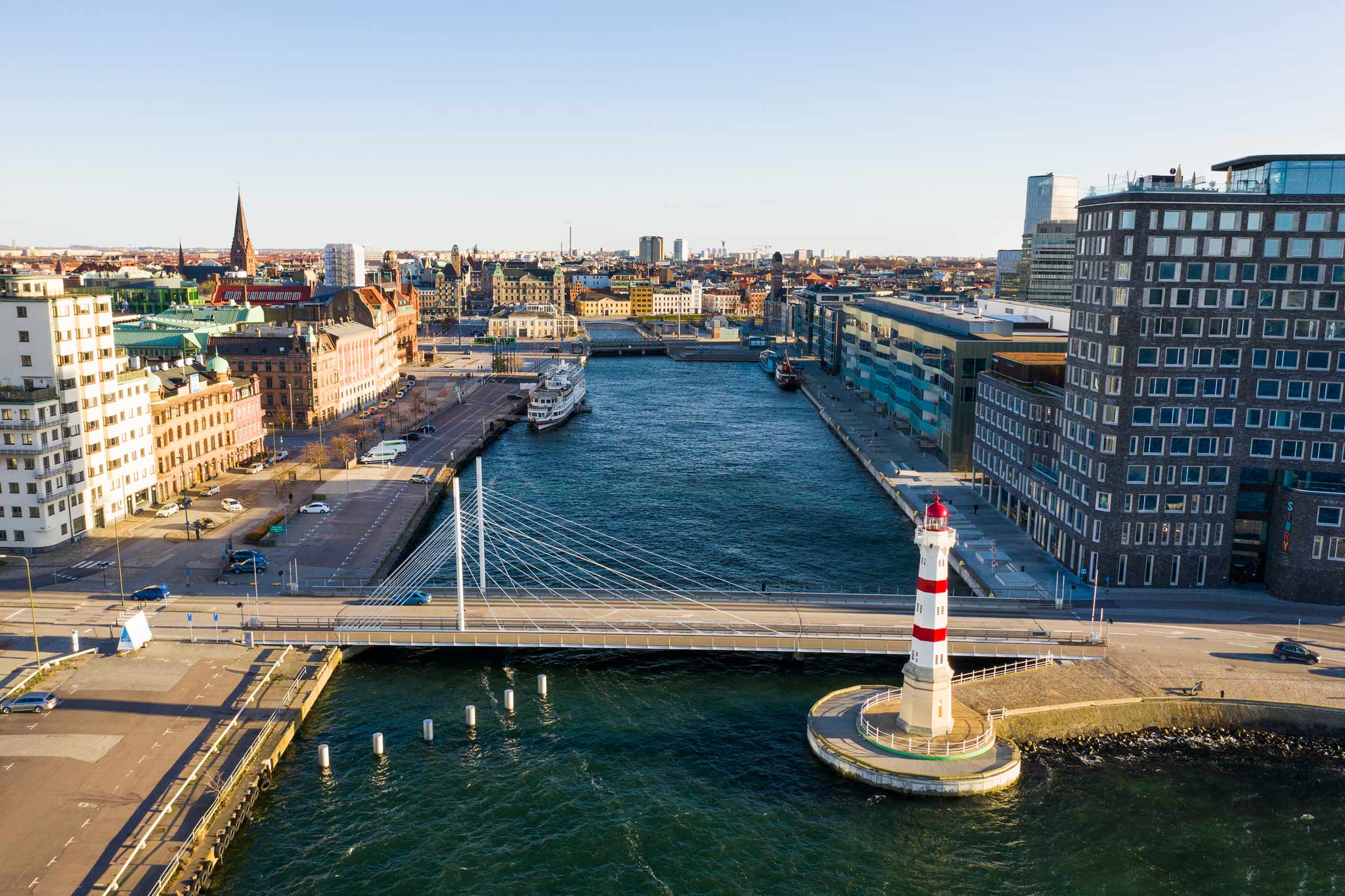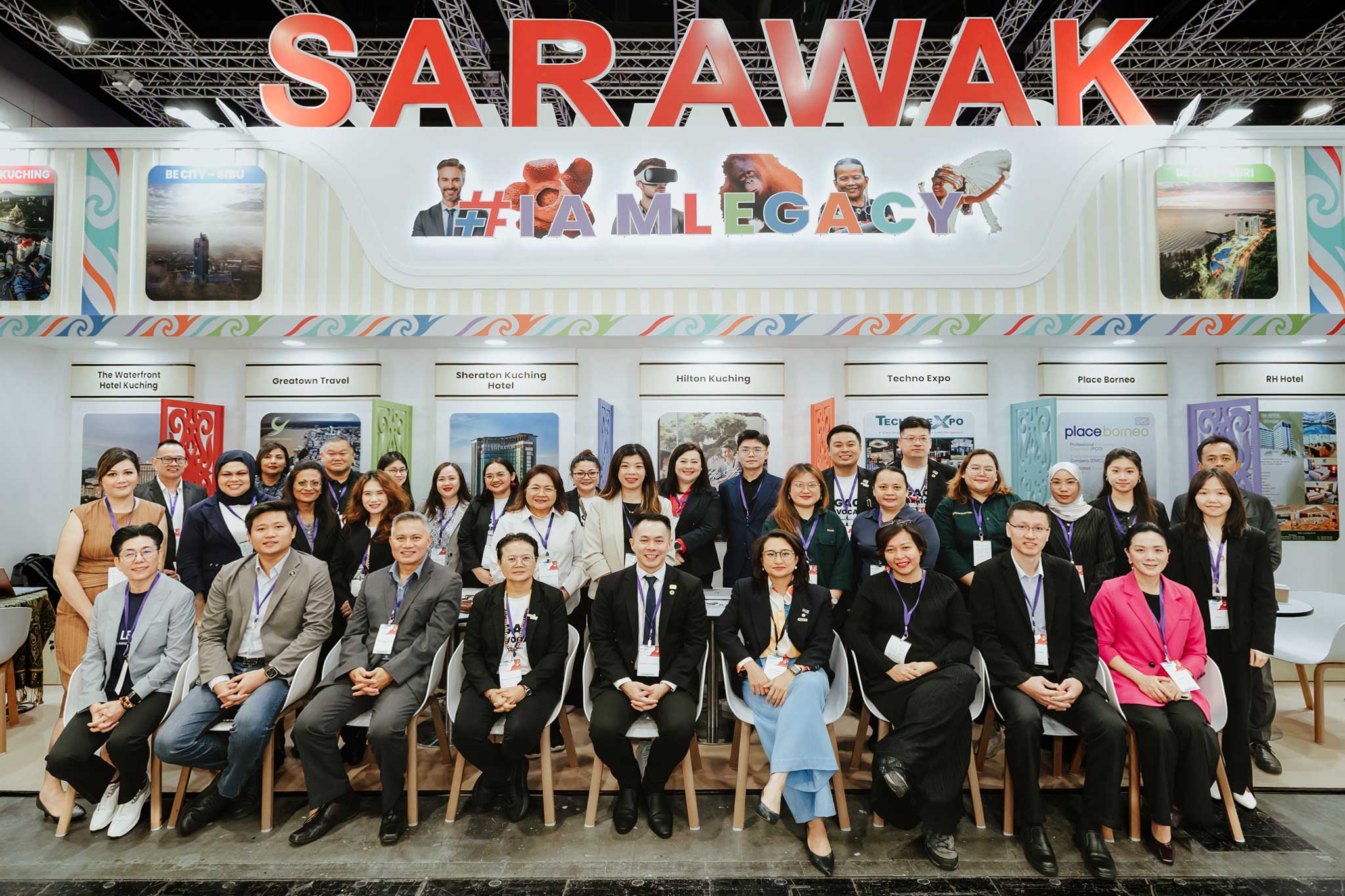After 18 months of in-depth research, the Future Meeting Space (FMS) innovation network presented the results of its latest study project at an online event on 22 February. Findings include that the relevance of events for an organisation’s overall communications mix will continue to grow in the future and that the increasingly hybrid set-up of meetings and conferences extends their reach, both from a time and geographical perspective. At the same time, the desire for physical locations and authentic experiences is growing. A download version of the complete study of the FMS project, which was initiated by the GCB German Convention Bureau and the Fraunhofer Institute for Industrial Engineering IAO, will be available soon.
The world of events is undergoing profound change, triggering the question about the future role of events in the overall communications mix of organisations. The Future Meeting Space innovation network addressed this key concern in its third research phase. The GCB German Convention Bureau and the Fraunhofer Institute for Industrial Engineering IAO presented the results at an online event on 22 February, which was streamed live from Messe Frankfurt and attended by several hundred participants from all over the world. The main findings of the research highlight that the relevance of events for the communications mix of organisations will continue to grow. The increasingly hybrid set-up of events requires that both the virtual and analogue world are perfectly staged, infused with emotion and smartly connected. In a highly digitalised world, however, people simultaneously long for authentic experiences in real world locations. In particular the role of events as a hub of international relations cannot yet be replicated in virtual spaces only and still requires personal and physical interaction.
Moreover, in the future, events will not simply be one-off occurrences, which are detached from other communication tools, but rather become part of organisationsmulti-sensory omnichannel marketing strategy. They will circulate in a kind of event loop in order to be able to build a corresponding community 365 days a year and thus make a brand constantly visible. “With the results of the study we offer all stakeholders involved in events recommendations for how they can – depending on their objectives – successfully use business events as a communication tool in the future,” says the GCBs Managing Director Matthias Schultze. “Being authentic is the basis for emotional and unique experiences, thus establishing close, long-term connections with the participants – whether they are actually on site or digitally integrated into events.”
The shift in the role of events as a result of the changing environment we live and work in means that the job specifications and skills profiles of the various stakeholders change as well. Agencies and event organisers act as community managers who build communities around a specific event. Professionals working at event venues become meeting architects with special know-how in how to design events and how to implement them technically. Convention bureaus act as trend scouts and partnership promoters that are well-connected in their regional ecosystem and interface between the partners. Digital skills and systematic data management are the basis for all of these tasks. The new requirements also mean that in this very dynamic environment, agility and flexibility are indispensable, something that also the FMS research team experienced at first hand: “When we started our third research phase in summer 2019, the pandemic was still far away and face-to-face events were everyday business,” says Dr Stefan Rief, Institute Director and Head of Organisational Development and Work Design Research Unit at Fraunhofer IAO. “Only a few months later, virtual and hybrid formats experienced a quantum leap and this development was, of course, also an immensely exciting phase for our research. Our study results now aim at providing everyone involved in business events of the future with orientation and inspiration for their own work in these very special times.”
The complete study on The future role and purpose of business events will soon be available as a free download.
Continuing its work in 2021 with a new research topic, the FMS innovation network will be looking at the challenges of the post-Covid-19 era in its The changing ecosystem of events study, with a focus on the new opportunities created by the changed ecosystem of events. This research project aims at analysing the challenges inherent in change and will develop usage scenarios for physical, hybrid and virtual meetings in our “new normal”.
The FMS innovation project was launched in 2015 by the GCB German Convention Bureau and the Fraunhofer Institute for Industrial Engineering IAO with the key goal of developing a vision for how people will meet in the future. This includes developing practical, hands-on tools for meeting planners and suppliers to help them get ahead of the curve. Results so far include, from phase I, an “Innovation Catalogue” round-up of new and future technologies, six “Future Meeting Scenarios” as well as the description of a possible “Future Meeting Room”, and from phase II, a report on how to create engaging events, including an overview of different attendee types, event success factors and recommendations for actions. Research partners of the now completed third research phase, which focussed on the role of events, were KFP Five Star Conference Service, Xing Events, Maritz Global Events, Radisson Hotels, Seven Centers of Germany, Munich Airport Academy / Lab Campus, Mesago Messe Frankfurt, and European Association of Event Centers (EVVC). In addition, this research phase was supported by the Education Foundation of the Professional Convention Management Association (PCMA).
